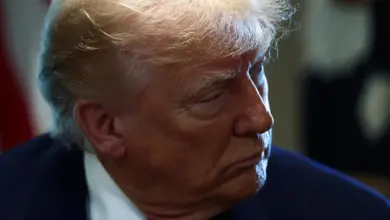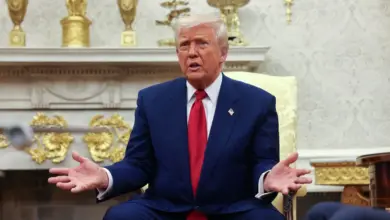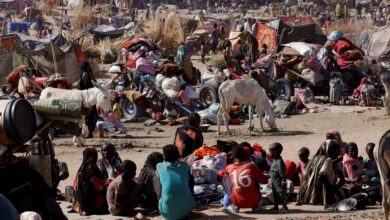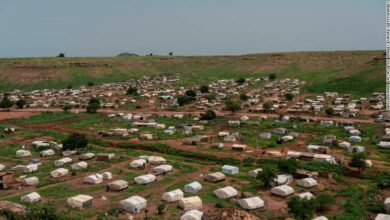Waleed Farouk, as they say, is a man of many hats. Among the most distinguishable is the jaunty kelp-green beret that sits atop his head on most weekdays. Another of these hats is his role at the helm of the recently established Nabta Art Center, which operates as a space for the necessitous artists and flanêurs around town who aren’t well represented by existing venues in the city. Catering especially to the attention of the substantial sub-Saharan African community living in Cairo, Nabta – a name chosen both for meaning “growth” in Arabic and for being the name of an ancient Sudanese village – works as a bridge between these two contiguous art worlds, hosting a variety of creative manifestations within its understated walls.
Since its launch only a few months ago, the center has held concerts, book signings, radio programs, public lectures, workshops, fashion shows and conferences for all those who wish to witness and participate. What makes Nabta particularly rare is that it really is a space for absolutely anyone. And in addressing the needs of this large community, Nabta is facilitating constructive cooperation and exchange between a far larger group of artists and thinkers working in Cairo.
Amado Alfadni, a Sudanese artist, who co-founded Nabta and organizes its youth program, talks about this diaspora. “There’s a big Sudanese community here: lots of first and even second generation Egyptian Sudanese, but they don’t have access to the services the government provides to Egyptian citizens, and lots of exclusionary policies keep the community from being well-integrated, even though a lot of them have grown up in Egypt and [have] never even been to Sudan.” Due to their outsider status, the community is disenfranchised because of the uneven disbursement of grant funding and educational opportunities.
“One of the things we’re trying to do at Nabta is provide training and language courses like the government provides to Egyptian citizens, so that the Sudanese community can get on a more equal footing and hopefully integrate better,” Alfadni continues. Some NGOs already provide this for refugees, but Nabta is trying to make these services available to everyone who needs them. “There are plenty of people who are actually refugees but can’t get official refugee status, so they aren’t eligible for help from NGOs,” he adds.
Aside from issues of status and identity, some young Sudanese artists also face the familiar reality of broaching an alien commercial art market without an established reputation. The insular nature of the Cairo art world makes early success difficult. Simply finding exhibition space without being a bankable artist is nearly impossible. When Farouk first arrived in Cairo, he experienced these travails.
“There was an issue when I came to Cairo as an artist finding a place to show … the spaces are reserved for artists with experience here in Cairo.”
So he started a center called Tukul for Egyptian and Sudanese artists to exhibit together. The first show was a group exhibition of 20 artists. It was such a success that writers, poets and musicians approached Farouk to use the space with him. This kind of synergism seems to be the core of Farouk’s philosophy. He is providing for the community a platform for cultural expression, yes, but he is also addressing issues affecting the community as they emerge, advocating a more holistic role. Most evident of this philosophy is the constant addition of diverse participants. His support of local initiatives means that people wish to work collaboratively across the Sub-Saharan and Egyptian cultural milieus; the broad range of events produced by Nabta in such a short time is a testament to this. Alfadni continues, “The idea is to get the African artists some exposure and start cultural dialogue. In the sixties, African culture was represented and integrated here, but since then there’s been a separation. We’re trying to get back to that cooperation and integration.”
Such cooperation and integration finds particular resonance in the subject of the current political struggles. Naturally, artistic production has been influenced by themes dealing with freedom: of expression, representation and political criticism. And even outside of Sudan, controversy and disagreement follow events of this nature. The book signing taking place at Nabta last month was for author Abd al-Aziz Baraka, whose work is banned in Sudan. Similarly, a concert celebrating Africa Day earlier this month at Cairo University by the singer Abazar devolved into complete chaos when the singer was vilified by some of the audience members for criticizing the government in North Sudan.
Farouk has little to say to his detractors. “The space is available for everyone. Right now we can say anything. It’s unusual. No one is scared.”
Certainly, Nabta is able to occupy this position of political impartiality because of Egypt’s political vacuum and its distance from Khartoum. Recently the center has also provided a space for discussions dealing with marginalized groups within Egypt, such as Bedouins and other nomadic groups of North Africa. Issues of identity were the focus.
The main difficulty for the center, as for many others in this sprawling city, is a dearth of resources. Since Nabta’s inception, Farouk has paid the bills out of his own pocket. He shrugs off the idea that he is exceptionally generous, saying, “I do it because people love it. People want to come to these events.” But Farouk and his team of industrious volunteers are ambitious. They want to renovate the space, and accommodate a more diverse variety of exhibitions. Even sound and light installations require equipment. This is in addition to the desire to start a 24-hour radio station and a monthly magazine. For a non-profit in its early stages, these plans may seem formidable, but keeping in mind the achievements of Nabta in such a limited period of time, they might not be such a long way off.
For more information about programming and events, check out their Facebook page and their soon-to-be-launched website.
Nabta lies on the 6th floor of 6 Sharbawy Street, off Qasr al-Nil Street, downtown Cairo.




